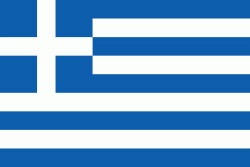Serres Prefecture (Nomós Serrón)
The mountains are Orvelos to the north, Menoikio to the east, Pangaio to the southeast, Kerdylio to the southwest, Vertiskos to the west, parts of Krousi to the west and portions of the Kerkini lies to the northwest. The regional unit borders on Thessaloniki to the southwest, Kilkis to the west, North Macedonia with the Novo Selo Municipality to the northwest, the Blagoevgrad Province of Bulgaria to the north, Drama to the northeast and Kavala to the east. The Strymonian Gulf lies to the south along with the Strymonas delta. Lake Kerkini was a lake located in the southern portion which is now drained. 41% of the regional unit are arable and most of the lands are near the Strymonas river which flows from Bulgaria and empties into the Strymonian Gulf. Another river is the Angitis in the eastern part of the regional unit, with the ravine and caves near Alistrati.
The regional unit has many archaeological and historical features including Serres, Amphipolis, several monasteries, and Metaxa near the border with Bulgaria. The regional unit is also a tourist attraction including Lailia, rich in forests, a skiing resort in the central portion, lake Kerkini which is a reservoir supplying water to the farmlands. Fishing is common within Ano Poroia especially during the summer months and famous Alistrati's caves and the nearby Aggitis ravine.
The southern part around the Strymonas valley has a Mediterranean climate, the rest is predominantly continental with cold winters in higher elevations.
Map - Serres Prefecture (Nomós Serrón)
Map
Country - Greece
 |
 |
| Flag of Greece | |
Greece is considered the cradle of Western civilization, being the birthplace of democracy, Western philosophy, Western literature, historiography, political science, major scientific and mathematical principles, theatre and the Olympic Games. From the eighth century BC, the Greeks were organised into various independent city-states, known as poleis (singular polis), which spanned the Mediterranean and the Black Sea. Philip II of Macedon united most of present-day Greece in the fourth century BC, with his son Alexander the Great rapidly conquering much of the ancient world, from the eastern Mediterranean to the North Western parts of India. The subsequent Hellenistic period saw the height of Greek culture and influence in antiquity. Greece was annexed by Rome in the second century BC, becoming an integral part of the Roman Empire and its continuation, the Byzantine Empire, which was culturally and linguistically predominantly Greek.
Currency / Language
| ISO | Currency | Symbol | Significant figures |
|---|---|---|---|
| EUR | Euro | € | 2 |
| ISO | Language |
|---|---|
| EN | English language |
| FR | French language |
| EL | Greek language |















